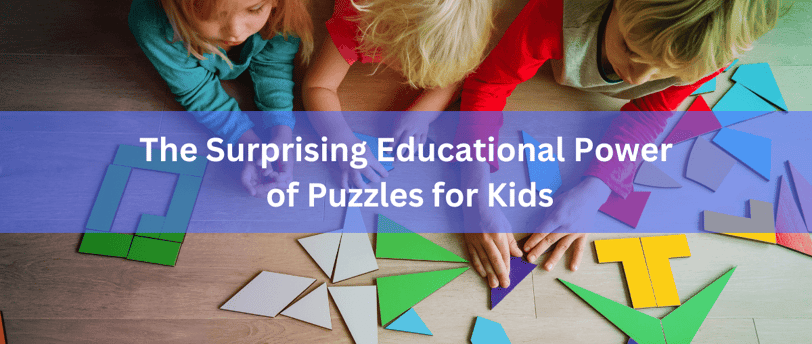The Surprising Educational Power of Puzzles for Kids
BUILD CONFIDENCECRITICAL THINKING SKILLSEMOTIONAL INTELLIGENCESTEM LEARNING
Valeria Astorga
6/1/2024


As a parent, you likely already know that puzzles offer a fun activity for families. But you may be unaware of how profoundly puzzles can enrich your child’s development and education. Research shows puzzles provide measurable cognitive, physical, and socio-emotional benefits that support learning. This article explores the many perks of puzzles and tips to leverage their full potential.
Boost Critical Thinking Skills
Let’s start with the mental advantages. Puzzles are an excellent workout for developing minds! The process of visually analysing shapes, rotating pieces, and finding proper fit exercises spatial reasoning abilities. This supports comprehension in critical STEM subjects like maths and geometry.
Puzzles also promote vital skills like critical thinking, sustained focus, logical problem-solving, and visual memory. As kids manipulate the pieces, they sharpen their abilities to recognise patterns, process information, and achieve goals step-by-step. These transferable skills serve kids inside and outside the classroom.
Develop Motor Skills and Body Awareness
Along with mental gains, puzzles provide meaningful physical development benefits. Manipulating pieces boosts eye-hand coordination, agility, and fine motor control. Grasping and handling puzzles also prep little hands for correctly holding pencils and crayons.
As kids scan the puzzle space to find the right fit, they build spatial awareness and strengthen mind-body connections. Tasks like isolating target pieces and inhibiting incorrect moves exercise executive functioning and impulse control.
Bond with Your Child and Build Confidence
The social-emotional realm is where puzzles really shine. Shared puzzle time provides a low-pressure way to connect as a family. Conversation flows organically while you cooperate and celebrate successes. This quality time strengthens family bonds.
As your child pieces together challenges, their effort is rewarded with a sense of mastery and self-confidence. Puzzles teach patience and how to persevere through frustration, equipping your child with emotional tools to tackle setbacks.
Maximize the Benefits
Follow these simple tips to integrate puzzles into your child’s daily routine:
– Start early with chunky wooden puzzles to build spatial skills
– Add complexity gradually as skills improve
– Connect puzzles to your child’s interests and lessons
– Ask open-ended questions during puzzle play
– Take turns to teach patience and teamwork
– Allow your child to solve independently
– Praise effort and persistence over outcomes
– Highlight your child’s progress with excitement
The takeaway? Puzzles provide an easy and entertaining way to exercise young minds. So, incorporate regular puzzle play to nurture your child’s development and learning. With numerous benefits, puzzles are a true win-win educational activity for the whole family!


